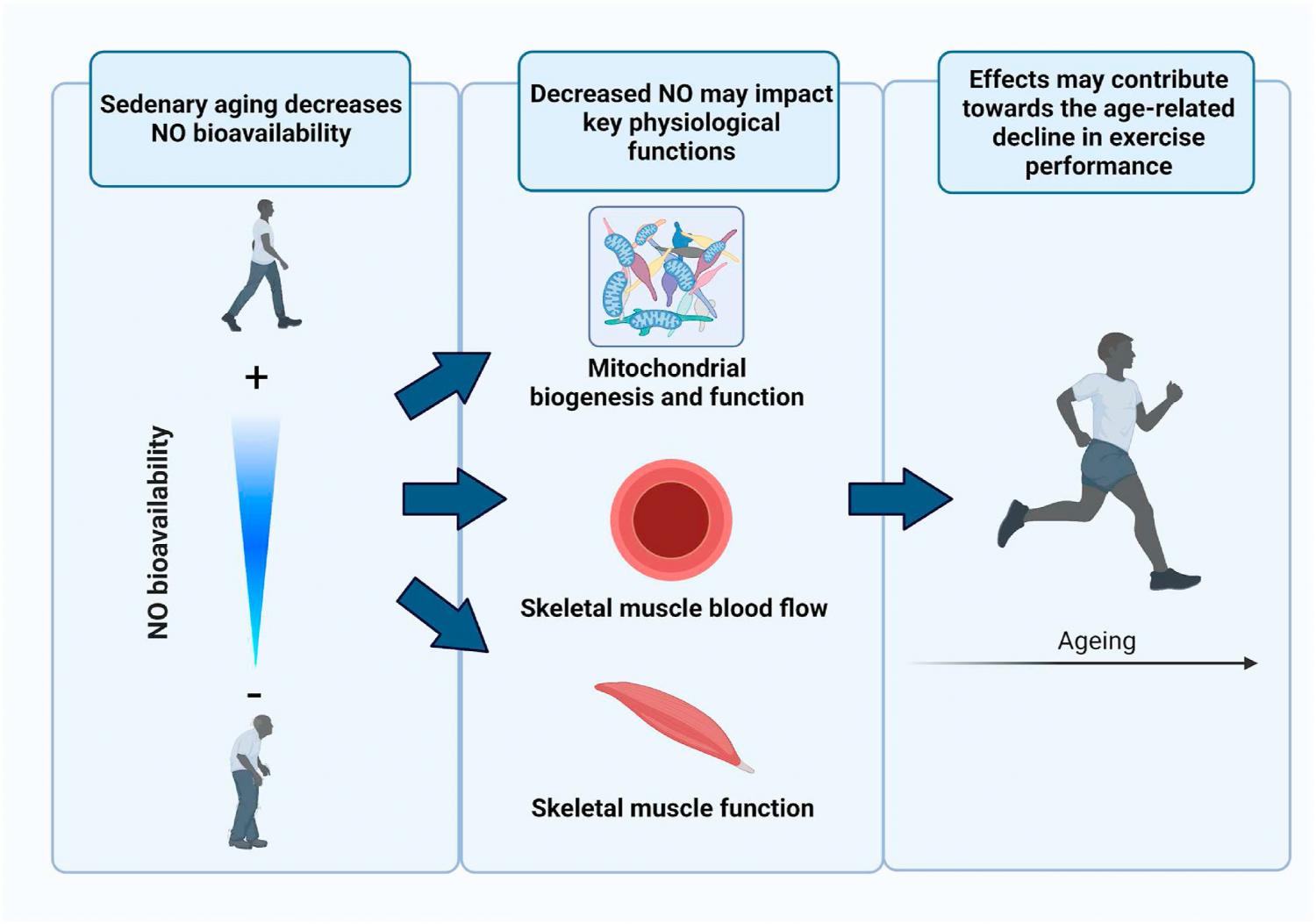
Aging is associated with a decline in physiological function and exercise performance. These effects are mediated, at least in part, by an age-related decrease in the bioavailability of nitric oxide (NO), a ubiquitous gasotransmitter and regulator of myriad physiological processes. The decrease in NO bioavailability with aging is especially apparent in sedentary individuals, whereas older, physically active individuals maintain higher levels of NO with advancing age. Strategies which enhance NO bioavailability (including nutritional supplementation) have been proposed as a potential means of reducing the age-related decrease in physiological function and enhancing exercise performance and may be of interest to a range of older individuals including those taking part in competitive sport. In this brief review we discuss the effects of aging on physiological function and endurance exercise performance, and the potential role of changes in NO bioavailability in these processes. We also provide a summary of current evidence for dietary supplementation with substrates for NO production — including inorganic nitrate and nitrite, L-arginine and L-citrulline — for improving exercise capacity/performance in older adults. Additionally, we discuss the (limited) evidence on the effects of (poly)phenols and other dietary antioxidants on NO bioavailability in older individuals. Finally, we provide suggestions for future research.
